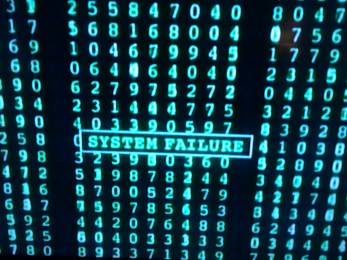
Government, energy & environment
The glass is always half full
Research conducted by the University of Pennsylvania into the level of optimism in written and spoken statements by political candidates has found that the most optimistic candidate nearly always wins. There are of course some problems. There is no agreed definition of optimism and there is the question of whether someone is optimistic because they’re winning or winning because they’re optimistic. But maybe we’re just being pessimistic.
Source: The Atlantic Monthly.
Antipathy 1 Anarchy 0
50% of Briton's are not sure whether they'll vote at the next election. A similar percentage can't remember the name of their MP and 25% don't trust politicians.
Source: Daily Telegraph (UK).
Counting votes versus voting that counts
According to Morris Reid (a US political consultant), more people over the age of 18 voted on the TV programme American Idol than in the recent November elections. Meanwhile, the Electoral Commission in the UK is considering lower age limits for voting and standing for election to Parliament. The idea is that if you can smoke at 16 why can’t you vote or help run the country? However, in reality such infantising of democracy is just an attempt to raise the turnout at elections (i.e. if you want more people to vote just give the vote to more people).
Source: Spiked-online/The Australian (UK/AUS).
Take a step to the right
A poll by YouGov has found that 17% of Briton's would now consider voting BNP (British National Party). The rise of the far right 'Little (white) England' party is linked to immigration and social deprivation.
Source: The Week (UK).
TMT (Too Much Tax)
Is a tax revolt on the cards? Middle class worries in many countries are focussed on employment, education, healthcare and retirement with anxiety about paying in too much in and getting too little (if anything) back.
Source: The Times (UK).
The truth about beauty
According to art historian Robert Hughes the term avant garde no longer has any meaning. If anything and everything is acceptable there is no longer anything to be ahead of. Furthermore, there is an assumption that film, television and photography tell us most about society when in fact drawing and painting bring us closer to the truth about the human condition. What is therefore needed is a return to slow art - art that makes us think and feel.
Source: The Australian (AUS).
Earn while you learn
Teenagers from under-privileged households are being offered payments of GB £ 30 a week to say at school. The cost of the scheme is GB £500 million (about 10% of the UK's total further education budget).
Source: The Guardian (UK).
Multiple choice politics
Is process replacing responsibility in everyday life? It won't be long before you can vote in supermarkets, but just because we can doesn't mean we should. Interactivity, 'giving people their say' and 'giving people what they want' are the chants of people in positions of power largely because if the public is in charge it's their fault when things go wrong. It's also a sham because people think they are taking part when they're not. The questions we're asked or the buttons we press are all agreed by others.
Source: The Times (UK).
The University of the street
It has been predicted that public libraries will cease to exist in the UK by 2020. The number of library users has fallen by 21% since 1994 while the number of books borrowed has declined by 35%. Meanwhile the cost of the service has increased by 35%. The problem is not helped by the fact that opening hours do not suit modern lifestyles or that the range of best-sellers is limited (sometimes to just one copy). In 1979 250% more books were loaned by libraries than sold in bookshops. Now the figures are even.
Source: The Guardian (UK).
